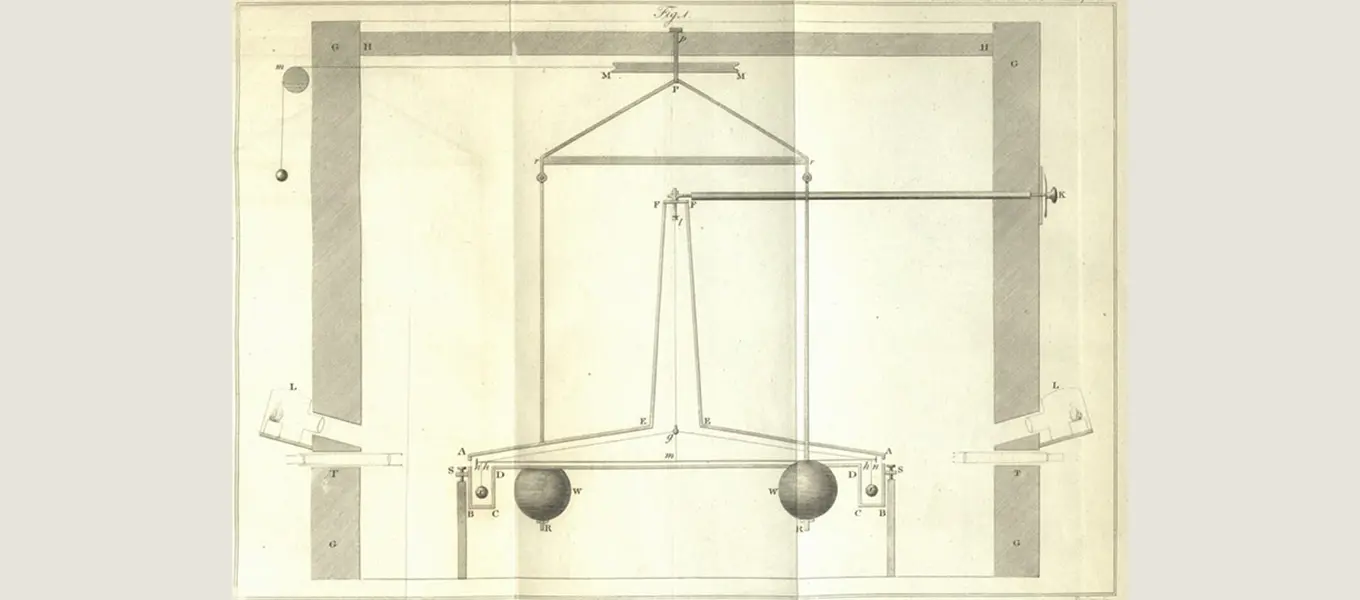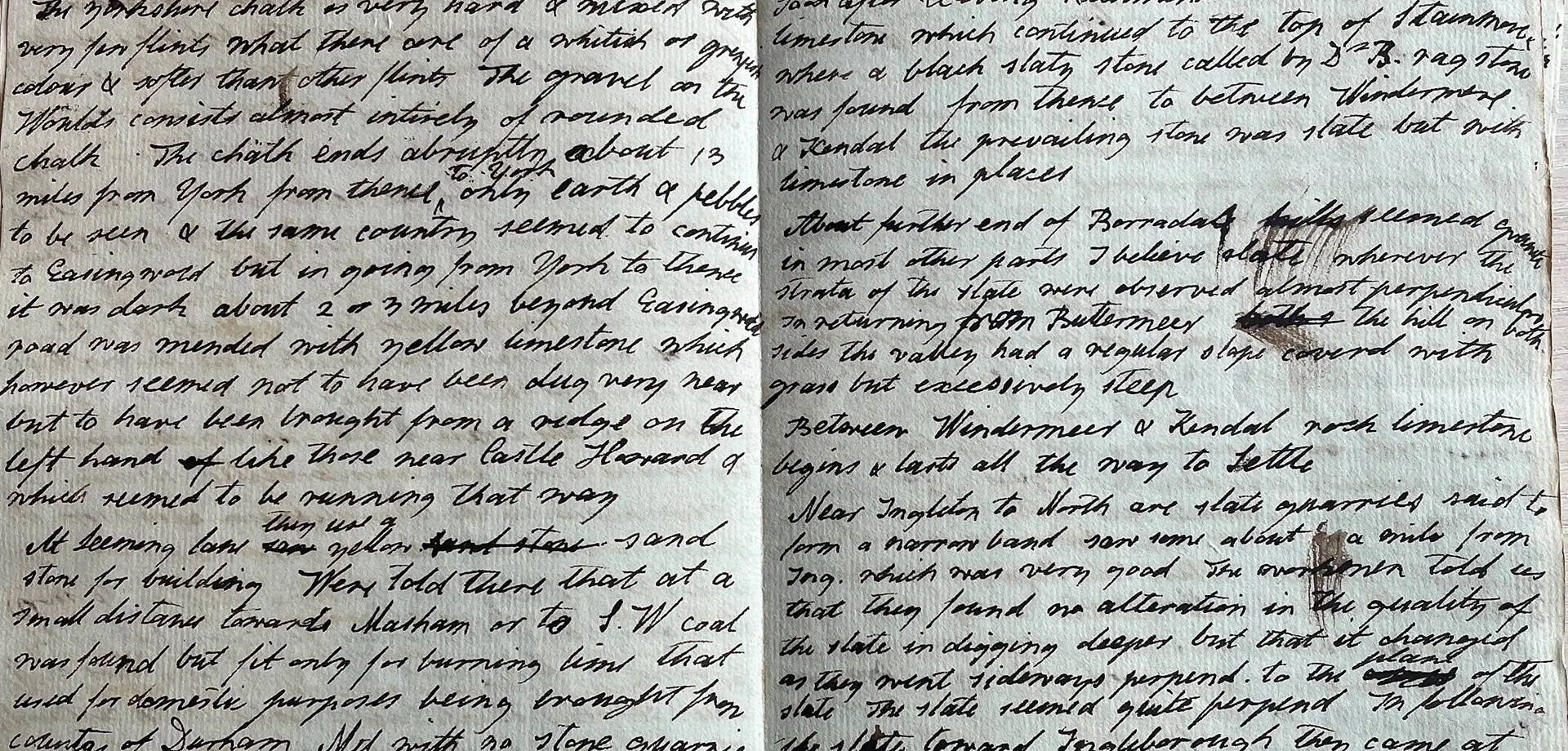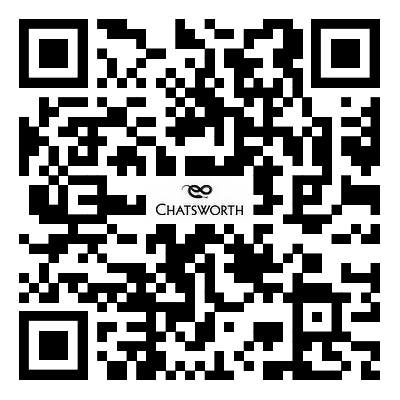Chatsworth's Archive and Library team is cataloguing the papers of Henry Cavendish (1731-1810), an experimental scientist and philosopher credited with discovering hydrogen and calculating the earth's mass.
In this second blog in the series, project archivist Erinna Cave shares her most recent discoveries.
I have now catalogued much of Henry’s scientific papers. One glaring discovery is the absence of any notes or observations written by Henry about his most famous experiment, now named after him as “the Cavendish experiment” and involved 'weighing the world'.
However, in the correspondence in the archive, we can see the genesis of the idea behind this experiment. In 1783, John Michell (1724-1793), rector of Thornhill, Yorkshire, F.R.S, started a correspondence with Henry Cavendish. They had previously met at the Royal Society dinners. Michell had a keen interest in geology and astronomy, being one of the first to propose the existence of black holes. The two scientists exchanged ideas and comments on their respective work.
In their letters, the topic of the “experiment” arises: Michell’s idea to use a torsion balance to calculate the mean density of the earth. Henry asks about Michell’s plans for experiments, commenting "if your health does not allow you to go on with that [Michell’s work on a large telescope] I hope it may at least permit the easier and less laborious employment of weighing the world".
Despite Henry’s hope, Michell’s health did prevent him from conducting the experiment. He only managed to build the torsion balance apparatus before he died in 1793. The instrument made its way to Henry after Michell’s death and so Henry set about completing their discussed experiment in 1797-1798.

Image of the torsion balance devised by Michell and Henry Cavendish (1798)
That is the extent of the records in the archive about this great experiment: a few letters exchanged with Michell. I wonder where Henry’s experimental notes could be: with another family member? In another box in the archive waiting for me to find them?
Michell’s friendship with Henry led to another significant event in Henry’s life. Michell encouraged him and Sir Charles Blagden, his secretary, to visit him in Yorkshire. In 1786, Henry set out from London, touring the Lake District, Yorkshire, Whitby Sands, Sheffield, Rotherham and Chesterfield.
In the journals that we have of this trip, Henry avoids the usual comments on the beauty of the lakes and the mountains. While Blagden writes about the “magnificent & beautiful” scenes around Windermere, Henry limits himself to writing about the strata: “the prevailing stone was slate but with limestone in places”, “Between Windermeer & Kendal rock limestone begins & starts all the way to Settle”.
For him, the point of the journey was scientific observation and research. Along the way, he takes readings with his travelling barometer and other instruments, some of which can be seen in the third image below.
Perhaps some of you are currently contemplating a similar trip over the holidays to enjoy the beautiful sights of the Lake District: take a tip from Henry’s travels, and try to notice the details of the landscape you travel through. And remember to take your scientific instruments!
Chatsworth House Trust (registered charity 511149) is dedicated to looking after the house, collections, garden, parkland and woodlands for the benefit of everyone.
All income from ticket sales, Gift Aid, our Chatsworth Friends and Patrons programmes, partners, sponsors and funders goes directly to the charity and is reinvested in the upkeep, preservation and improvement of Chatsworth, our learning programme and essential conservation work.
Chatsworth holds an extensive archive that includes the personal papers of the Devonshire family, historically significant acquisitions, and estate and staff records. The charity funds the preservation, restoration and cataloguing of these papers, sharing the findings to advance our understanding of historical figures, events and places, and to make them available to anyone conducting research for academic or personal reasons. Find out more about our archives and library.
Learn more about Chatsworth House Trust, or make a secure online donation to support the work of the charity, using the links below.
About Chatsworth House Trust
Chatsworth House Trust is a registered charity established in 1981 to improve and maintain the house, collections, garden, woodlands and park for the benefit of everyone.
Support our Cascade Campaign
The Cascade has been delighting visitors to Chatsworth since 1696 but is now in need of urgent repair. Learn more about our fundraising campaign 'Celebrating the Cascade'.
Donate online
If you can, support us by making a one-off or regular donation to the Chatsworth House Trust charity online.
Chatsworth Friends
Support the work of the charity while benefitting from unlimited visits, free tickets to events and discounts on shopping, dining and stays.
Gift Aid
When you use Gift Aid, the government gives an extra 25% on top of your kind donation, in lieu of tax you have already paid. All of this money goes directly to Chatsworth House Trust.
Patrons of Chatsworth
Patrons play a vital role in supporting the long-term stewardship of Chatsworth and enjoy exclusive access to the collections and curatorial team via special events.






